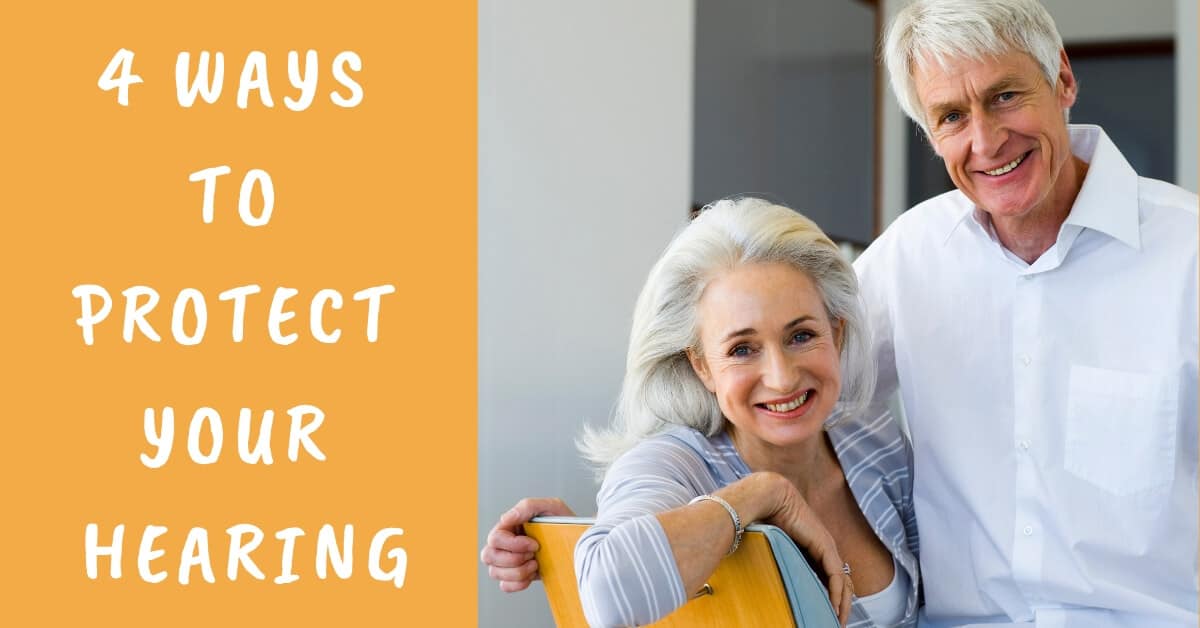
- A Step-by-Step Look at How Hearing Aids Make Sounds Sharper - May 5, 2025
- Causes of Conductive Hearing Loss? - April 27, 2025
- Can Treating Hearing Loss Reduce Stress? - April 15, 2025
Do you have a friend or family member with hearing loss? Maybe you yourself have been struggling to follow conversations, or can’t hear in places with a lot of background noise. While you’ve come to realize that hearing loss is no walk in the park, one thing we don’t address often enough is the importance of protect our hearing before we experience hearing loss. Noise induced hearing loss is far more common than you might think, and nearly 40 million Americans aren’t able to hear clearly. Here are 4 ways to protect your hearing for years to come.
Noise Induced Hearing Loss
While it’s true that many Americans lose their hearing as they age, and 50% of all seniors over the age of 75 have hearing loss, noise induced hearing loss (NIHL) is a major health concern, and millions of adults, teens, and even children suffer from this totally preventable hearing loss. NIHL can be very sudden, like when you’re exposed to one very loud noise like a gunshot a close range. More commonly, it’s a gradual process, and your hearing is damaged over the course of months or years of exposure to dangerously loud sounds.
You might be struggling to determine how loud is too loud, and you’ve been neglecting your hearing health simply because you haven’t realized that you’re exposing yourself to dangerously loud sounds. A good rule of thumb is that if you need to yell to be heard by the person standing next to you, it’s too loud, and you’re both risking your hearing health. Sounds that are harming your hearing are the rock concert or sports event you attended on the weekend, or your noisy jobsite with very loud machinery. Other sounds you might not realize are damaging to your hearing health include a loud vacuum cleaner, a leaf blower, heavy traffic, emergency sirens, or even the garbage truck.
1. Wearing Appropriate Hearing Projection
The easiest way to protect your hearing, in any situation, it to wear the appropriate hearing protection. You need to be aware of the noise around you, and make sure that if sounds are too loud, you wear hearing protection. This can be simple foam earplugs during a concert or in a crowded bar with friends. If you work on a noisy jobsite, you might have more heavy-duty ear protection, such as digital ear plugs, or earmuffs, that will keep your ears safe from a full day surrounded by dangerously loud sounds.
2. Turn It Down
The second way to protect your hearing is to turn down the volume. If you’re able to reduce the noise at your job, or invest in a quieter vacuum cleaner, this will protect your ears. Do you spend hours of every day listening to music, and have the volume turned up far too loud? A simple way to protect your hearing is to turn down the volume, and make sure you’re listening at safe levels that won’t be damaging your hearing health. Whether at the gym, during the commute to work, or dancing around your living room, be conscious of the volume of what you’re listening to, especially if you’re using earbuds, and blasting your favorite tunes right into your ear canals.
3. Invest in Custom Ear Molds
If you’re wearing earbuds all day, or have earplugs in at work, you could consider investing in custom ear molds. This will make your earbuds or earplugs far more comfortable, and help you reduce the volume by providing a great fit and less feedback.
4. Schedule a Hearing Test
If you want to protect your hearing, call us today at Hearing Aid Specialists of the Central Coast to schedule a hearing test. One of the best ways to have healthy hearing is to monitor your hearing health, have regular hearing tests, and be primed to notice as soon as your hearing changes. Many adults haven’t had their hearing tested since middle school, and you owe it to yourself to take charge of your hearing health and get a baseline hearing test so you can discover your unique hearing profile, hearing needs, or hearing loss.
Call us today and let our team of hearing health specialists help you protect your hearing.
